Updated
12 min read
Grants For Mobile App Development — Who They’re For and How to Find Them

Creating your own mobile app is hardly a cheap endeavor.
In fact, building a high-quality app can get very expensive very quickly.
So how do you mitigate those costs?
There are actually many ways you can get funding for your app that don’t involved pulling money from your own pocket, like getting investor money, for example, but grants are an excellent way to fund your app project.
I dive in deeper on how you can get investors for an app in this video.
The key is knowing where to look, but there are grants for just about everything—women, minorities, non profits, you name it.
But the process of finding and applying for grants can be a bit daunting, but it’s also worthwhile if you think you might qualify.
A grant is essentially free money that you can use to get your app off the ground, debt-free.
In this article, we’ll talk about the best grants for mobile app developers, how to apply, and why they’re such a great source of funding.
Table of Contents
- What is a Grant?
- Who are Grants For?
- What Grants are Available to Mobile App Developers?
- Small Business Grants
- State and Local Grants
- Corporate Grants
- Demographic-Specific Grants
- How You Can Apply For a Grant
- Other Funding Options
- Small Business Loans
- Crowdfunding
- Venture Capital or Angel Investors
- Startup Competitions
- Private Investors
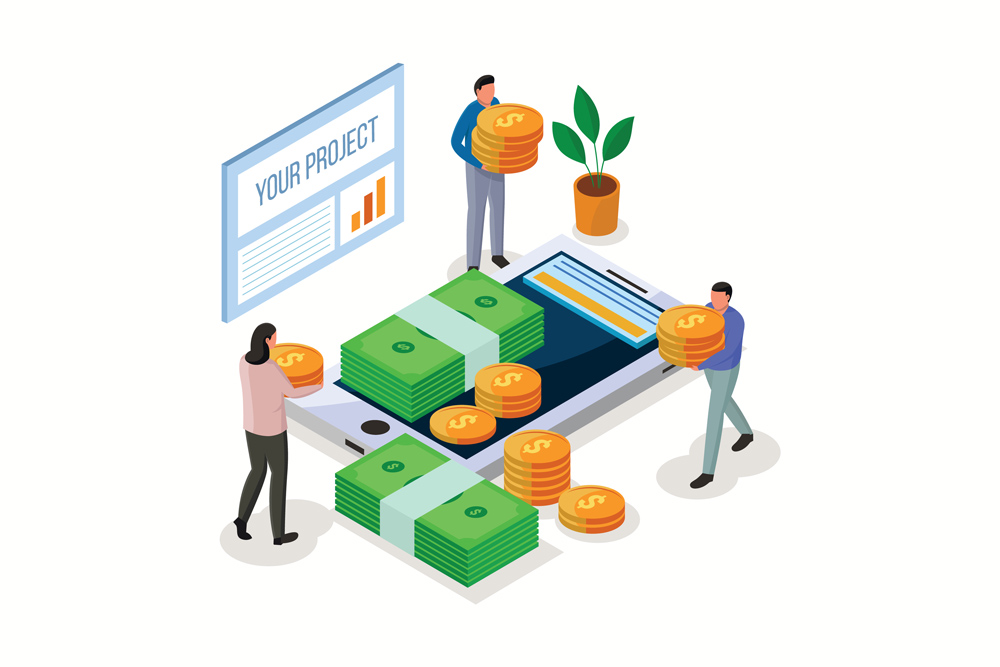
Chapter #1: What is a Grant?
Grants are a great source of funding for projects, like app development, because it’s essentially free money.
It usually comes from the government, but you can also get grants from a foundation or company. The idea of giving this “free money” by such entities is that it’s going to be used for a specific goal, and doesn’t need to be paid back.
In some cases, however, the money might have to be paid back if the project is abandoned. For example, if you get a grant for building a mobile app that will benefit the environment but then you give up on this app idea, you might have to pay that money back.
Some examples of grants include education loans, research money, and even stock options (which can be used to incentivize performance).

1.1 Who are Grants For?
In order to receive a grant, you’ll need to apply, as funds are limited. The application process can vary depending on what type of grant you’re applying for and how much money it is.
Governing bodies consider a variety of factors when deciding who to award grants to.
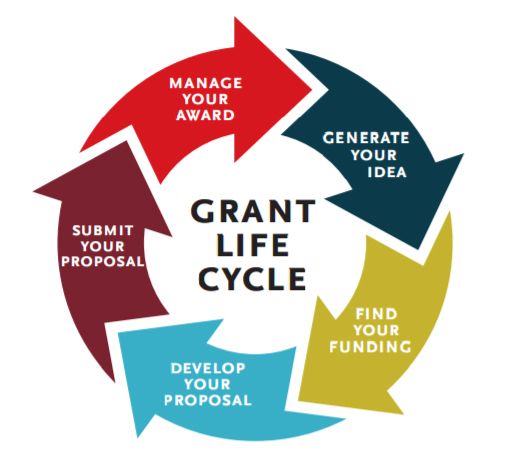
They’ll look at your business to plan to see how your app will affect the economy, but they’ll also consider the societal benefits of your concept.
Apps that have social benefits have a leg up when it comes to receiving grants.
For example, non-profit apps or apps that support the community have a strong case when it comes to grant funding.
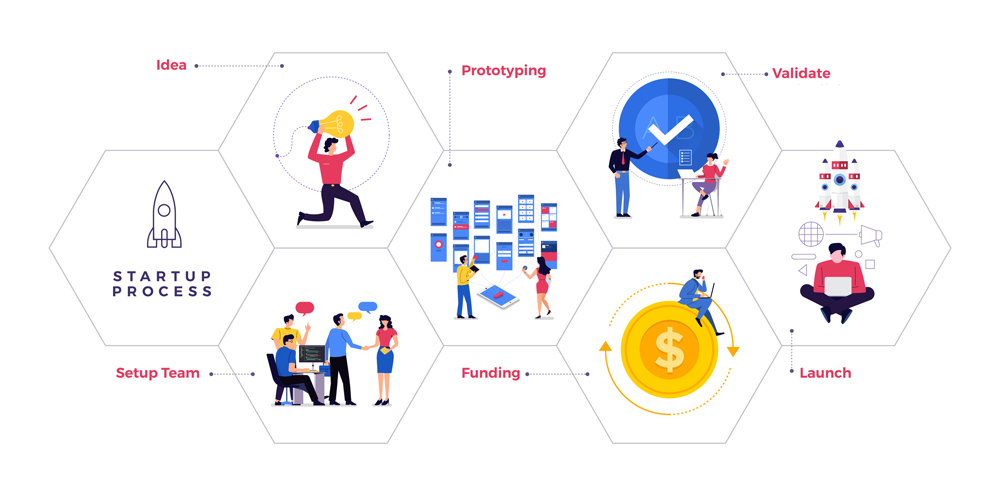
Other examples of apps that do well with grant committees are educational apps and health apps.
Apps with a positive environmental impact are also very successful in many cases, especially as global climate change becomes an increasingly prominent problem.
Chapter #2: What Grants are Available to Mobile App Developers?
Grants are actually a very viable source of income for mobile app developers since they’re technically small businesses.
And if you have a small business, chances are, there may be a grant for your specific industry.
If you’re building the next Grindr or Tinder app, you’ll be hard-pressed to find a grant, since grants are typically given to projects that better society in some way, but it doesn’t hurt to look and see what’s available.

You can also look at grants for your specific state and city, or grants for your specific industry.
2.1: Small Business Grants
The US government offers several small business grants that apps can take advantage of. One of the best places to look is the National Association For The Self-Employed.
The NASE offers grants for businesses with a total worth of less than $5,000.
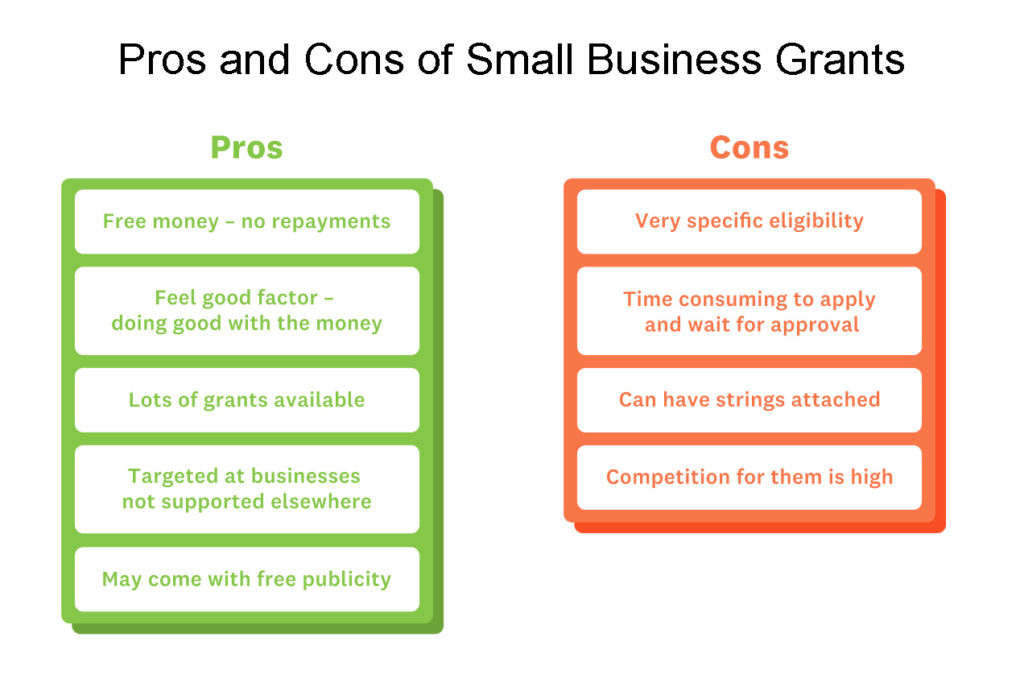
They aren’t as selective as many other government grants, but they do require you to become a member of their organization before you apply for their grants.
The government also offers two lucrative but competitive grants for small businesses. These are the Small Business Innovation Research Program (SBIR) and the Small Business Technology Transfer Program (SBTT).
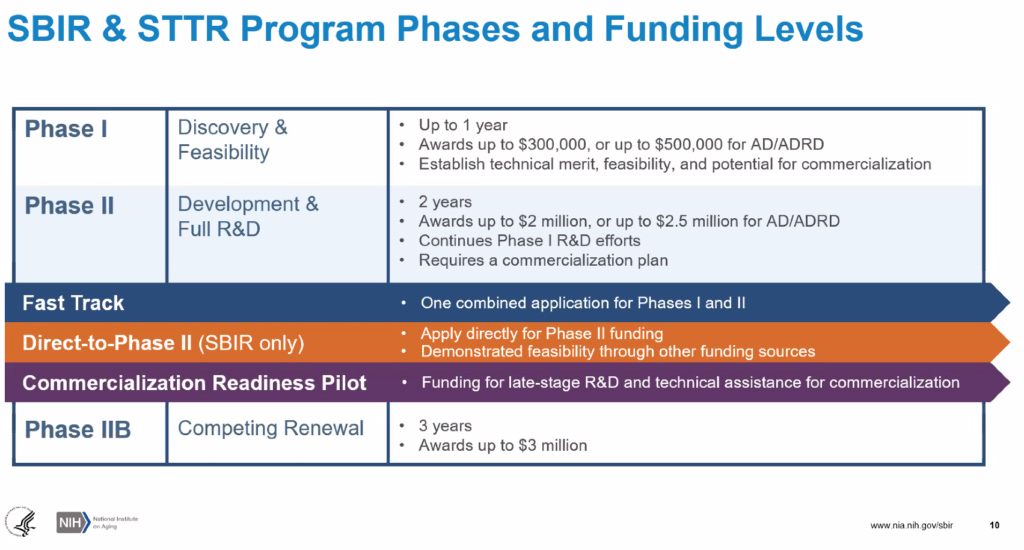
The SBIR provides funds to small businesses for research and development purposes.
If your company is using an app as part of a broader research and development strategy, you could qualify for this grant.
The SBTT provides grants for companies that support general innovation and commercial growth.

Both of these grants are very competitive, but they can also be very lucrative, so it’s worth checking out.
2.2: State and Local Grants
In addition to federal grants, there are also many state and local governments that offer grants for small businesses.
Contact your local government offices to see what grants they have available for small businesses.
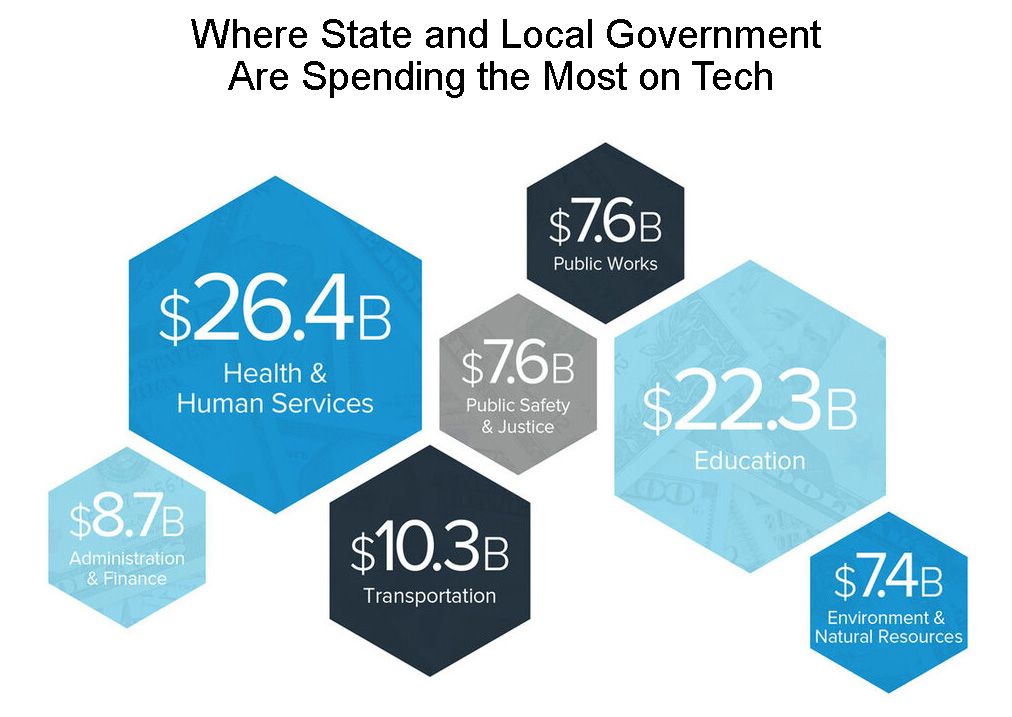
Local governments want to support home-grown talent with their grants.
Outside of the government, you’ll also want to consider local small business organizations and industry organizations, which may also offer their own grants.
You can look for local and state grants through the federal government database on Grants.gov.

These grants are often part of Federal Domestic Assistance or the Economic Development Administration.
Finally, if you live in a rural area, you may qualify for a business grant from the US Department of Agriculture.
Just keep in mind that your app will probably need to be location-specific in order to qualify.
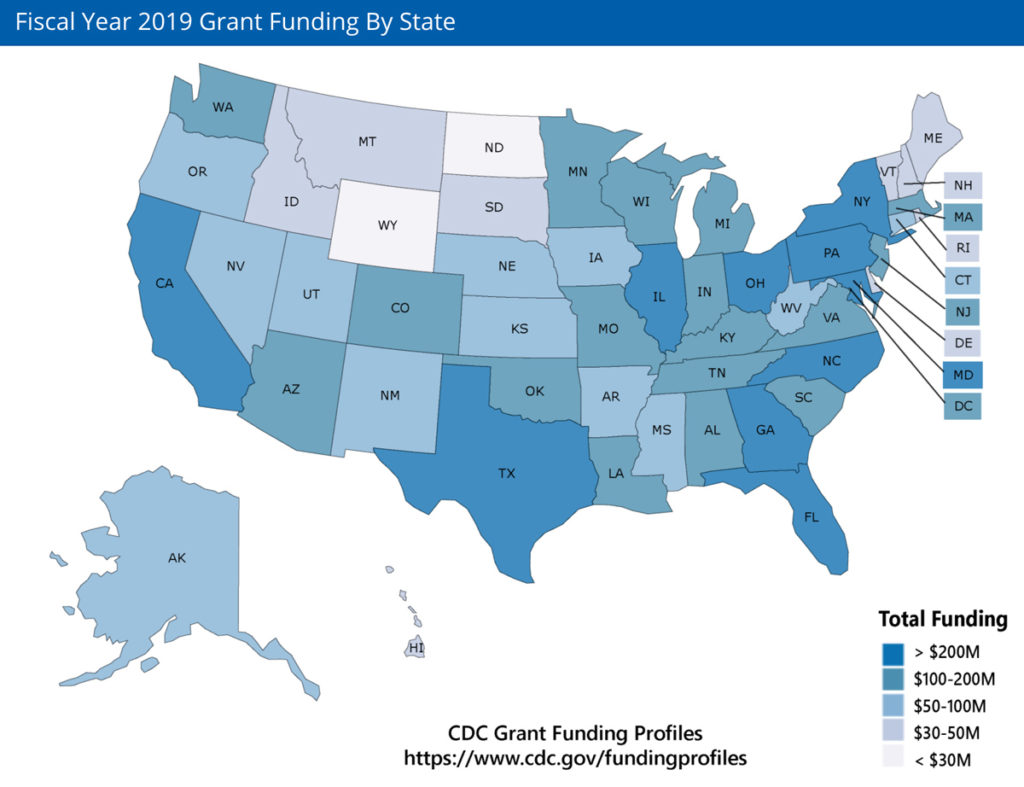
2.3: Corporate Grants
There are also private companies that offer corporate grants for small businesses. Some of these include:
● The Visa Everywhere Initiative – This grant is for companies that create innovative e-commerce and payments solutions.
● FedEx Small Business Grant – This grant competition is held every year and gives out prize money to a total of 12 small for-profit businesses.

● Nav Business Grant: Nav provides grants to small businesses on a quarterly basis. They don’t have many specific requirements, so they’re a great grant option for small businesses.
● Idea Cafe – This company provides one small business grant on an annual basis. While it isn’t the largest grant, it does come with an advertising budget on top of the prize money.
● Patagonia Corporate Grant Program – This program provides grants to nonprofits that are working to protect the environment. If your app has environmental benefits, you could qualify.

These are just some of the most well-known corporate grants available right now.
PRO TIP:
Look for leading organizations in your industry to see if any of them offer grants you may qualify for.
For example, if your app serves as a platform for art, you can look at the National Endowment For The Arts.
2.4: Demographic-Specific Grants
There are many organizations that want to support businesses run by people of a certain community.
These organizations offer grants to people who meet specific demographic criteria.
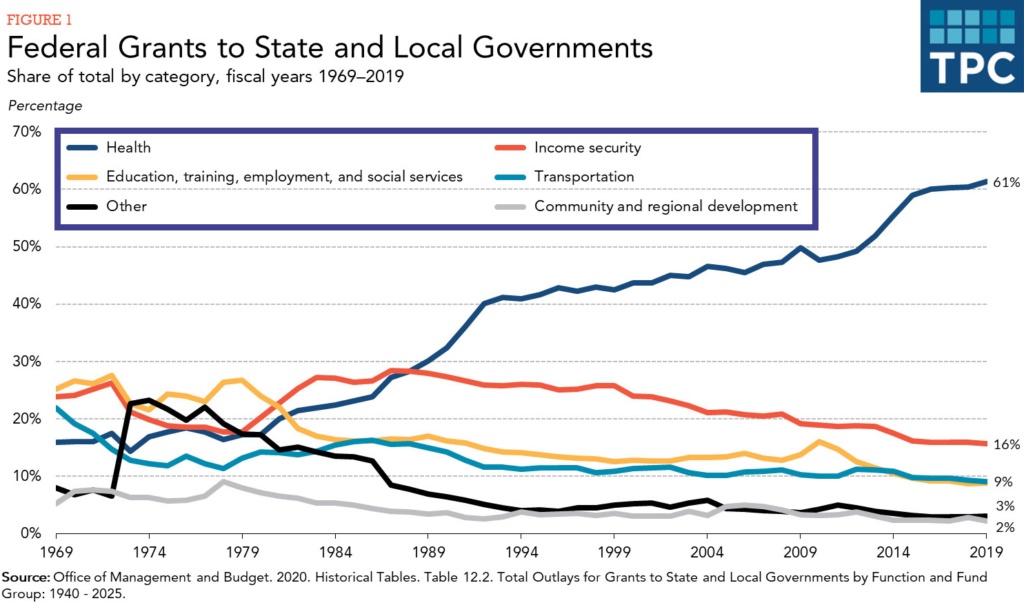
No matter what your background is, it’s worth checking to see if there are any grants available for people like you.
There are many grants available specifically for women, as well as grants for certain ethnic and cultural minorities. There are even grants available for veterans.
PRO TIP:
If you’re part of an ethnic minority, check with the Minority Business Development Agency to see which grants they have available.
Just keep in mind that you’ll need to register with the organization before you can apply.
There are also many popular grants specifically for women-led businesses. The Amber Grant is one of the most well-known and is determined by an online vote.
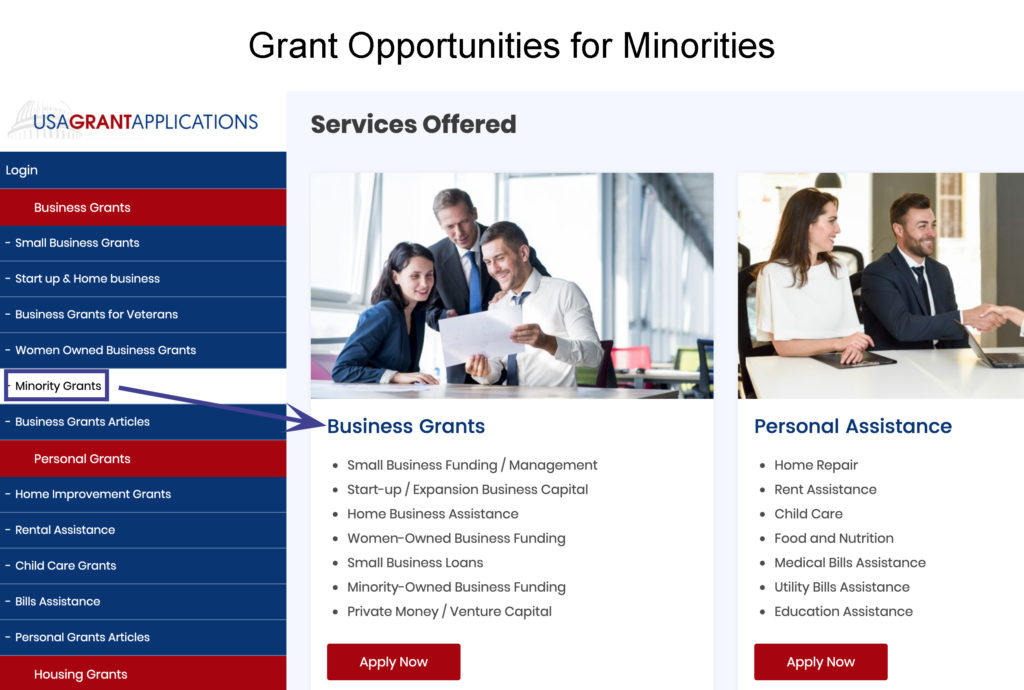
The Department of Veterans Affairs and the Small Business Administration also both have resources for veterans looking to start a business.
Chapter #3: How You Can Apply For a Grant
Applying for a grant can feel a bit daunting, especially if you haven’t done it before.
The stronger your business proposal is, the better your grant is going to look.
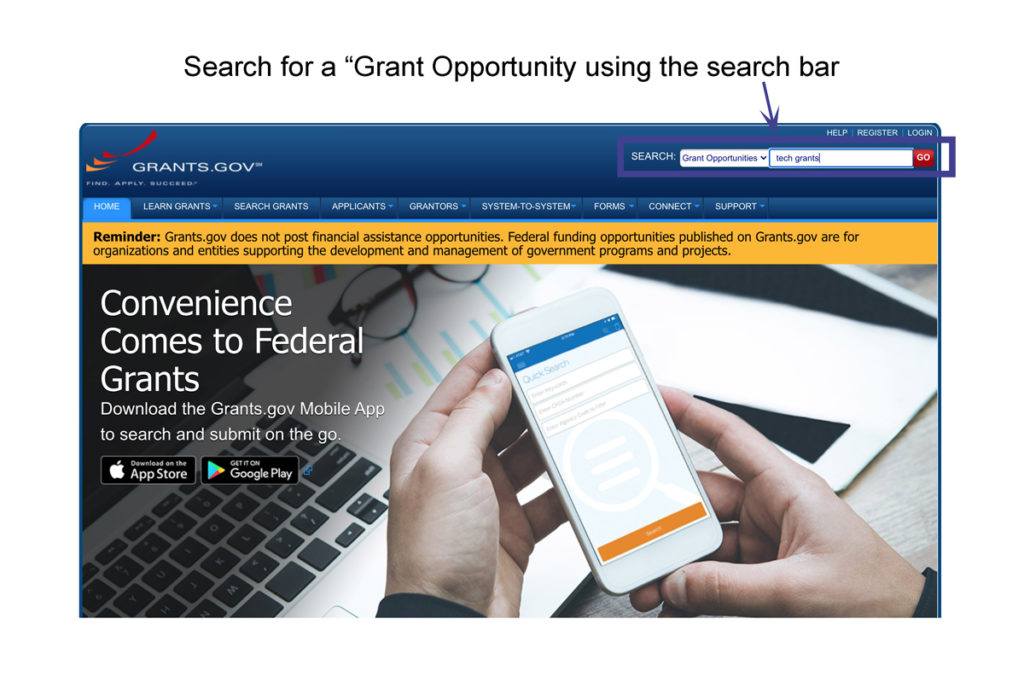
You can typically find grant applications directly on the organization’s website, along with their instructions for submitting.
Grants.gov is a great place to search for federal grants. You can even narrow down your search by category or by the grant amount.
Grant applications can take several weeks to put together, so you’ll want to start earlier. You may also want to consult a financial expert ahead of time.
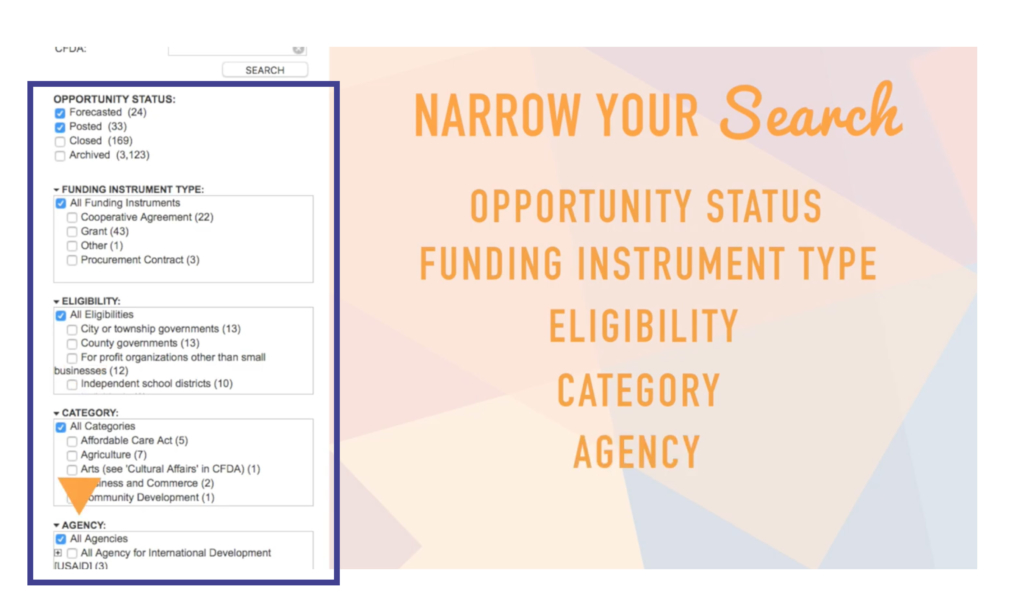
Since grants can be very competitive, you’ll want to make sure you have an effective business model to help you stand out. This should include detailed information about how your app will make money, how you’ll draw in new users, and how it will benefit society as a whole.
If you’re struggling with your grant applications, you may also want to consider hiring a professional grant writer.
Since they specialize in this type of writing, they’ll help you present your business in the best light.
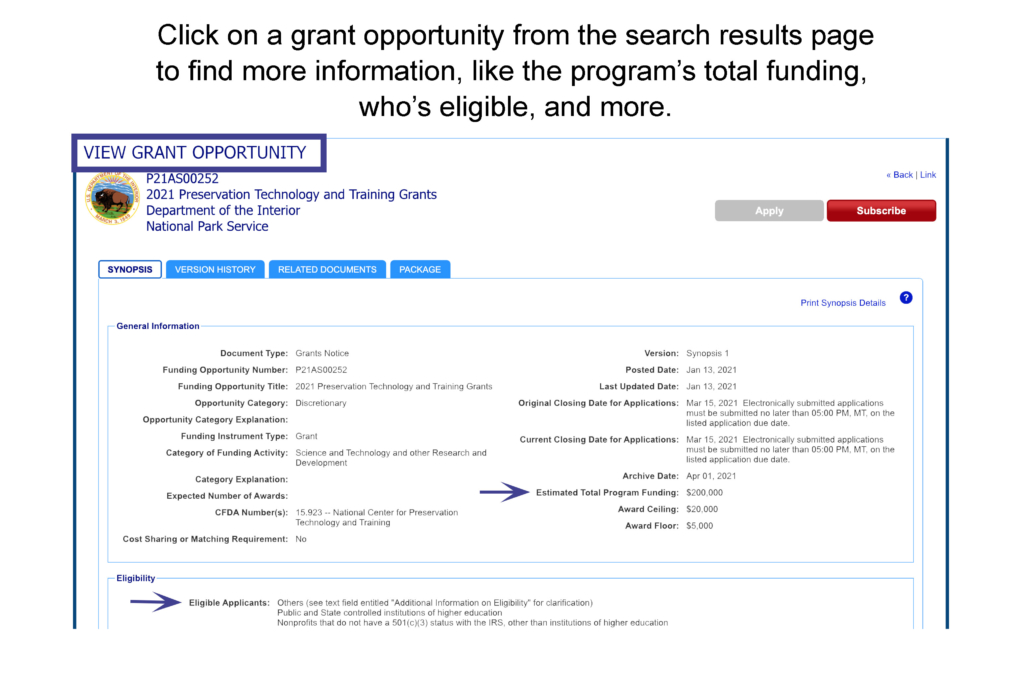
Chapter #4: Other Funding Options Available
Grants are just one way to find funding for your app. They have the unique advantage of being completely free, but they can also be very competitive.
Luckily, there are plenty of other funding options that you can use to get your app off the ground. It’s best to explore all your options and see where you can find funding.
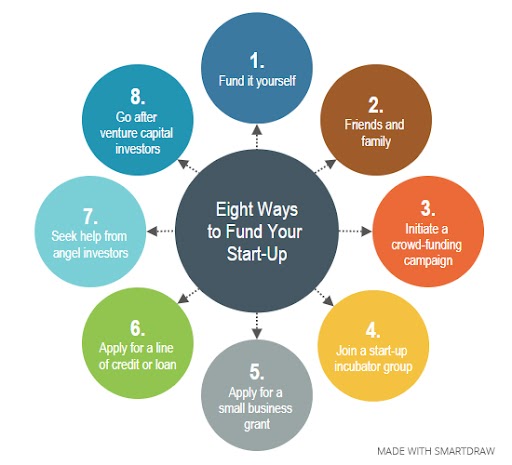
Photo Credit: bbb.rcb
Having enough initial funding is crucial when starting an app. Extra capital essentially buys you time to make the app as great as it possibly can be.
Here are some of the other funding options you can use when building a mobile app.
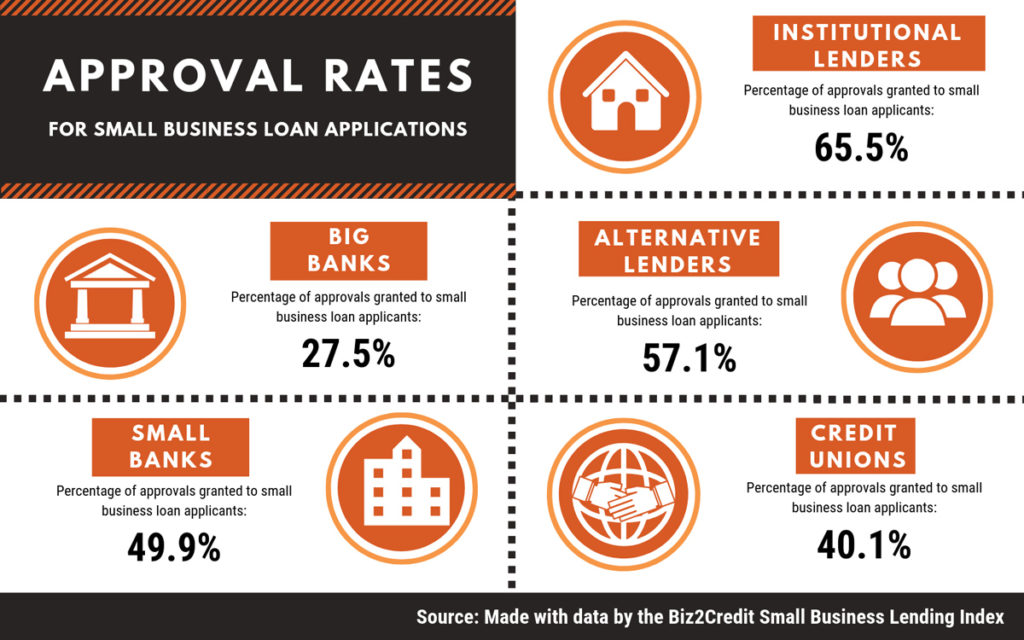
4.1: Small Business Loans
In addition to grants, you can look at loans designed specifically for small businesses.
The Small Business Administration offers low rate loans that you can use to get your app off the ground.
Unlike grants, these loans will need to be repaid over time, but they have very reasonable rates.

Depending on where you get a small business loan, it may even be forgivable under certain circumstances.
Loans are also far less competitive than grants.
4.2: Crowdfunding
Crowdfunding has become a very popular way for startups to raise capital.
Kickstarter and IndieGoGo are two examples of crowdfunding platforms that are great for startups.
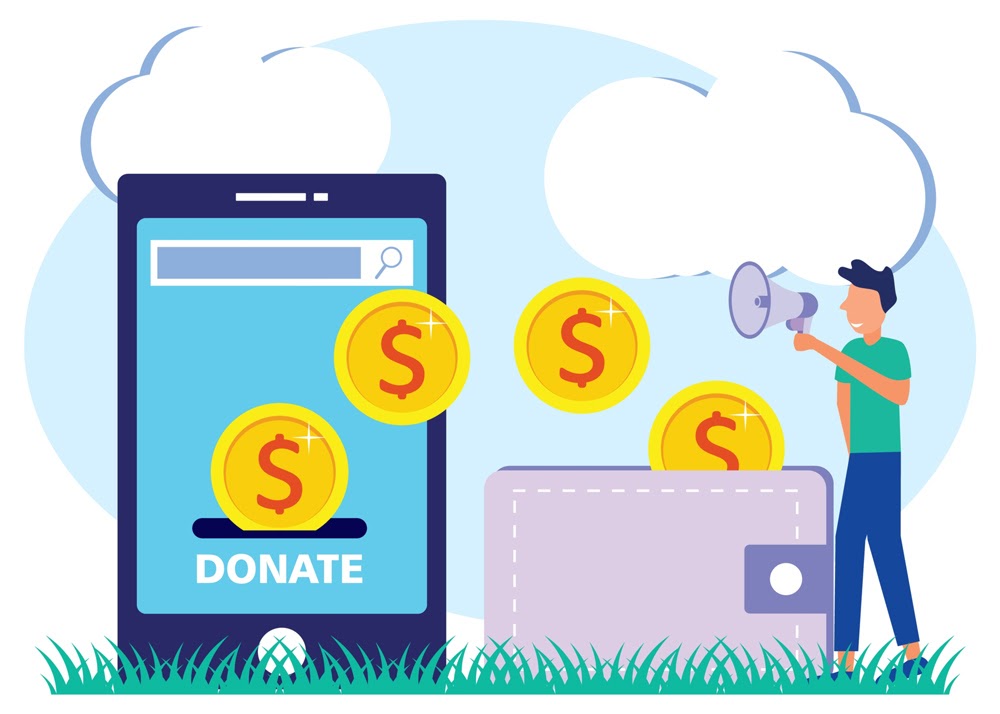
One of the advantages of crowdfunding is that there’s no minimum donation limit. This means that people can contribute to your campaign even if they only have a few extra dollars to give.
Some platforms require you to offer small perks for each donation. This is a great way to market your app and encourage people to donate.
4.3 Venture Capital or Angel Investors
Depending on where your app is in the development process, you can go to venture capital firms or angel investors for funding.
Venture capital firms fund projects that are already in development. They give out large amounts of money, but they expect large returns in the future when your app starts making money.
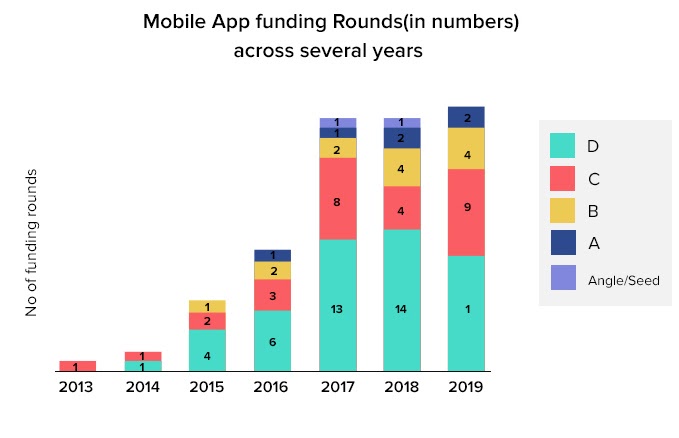
To capture the attention of a venture capital firm, you’ll need to show them that your app can start making money quickly.
Photo Credit: mobileappdaily.com
You’ll need a rock-solid business plan that you’ve already started to implement.
Alternatively, angel investors fund projects that are in the very early stages of development.
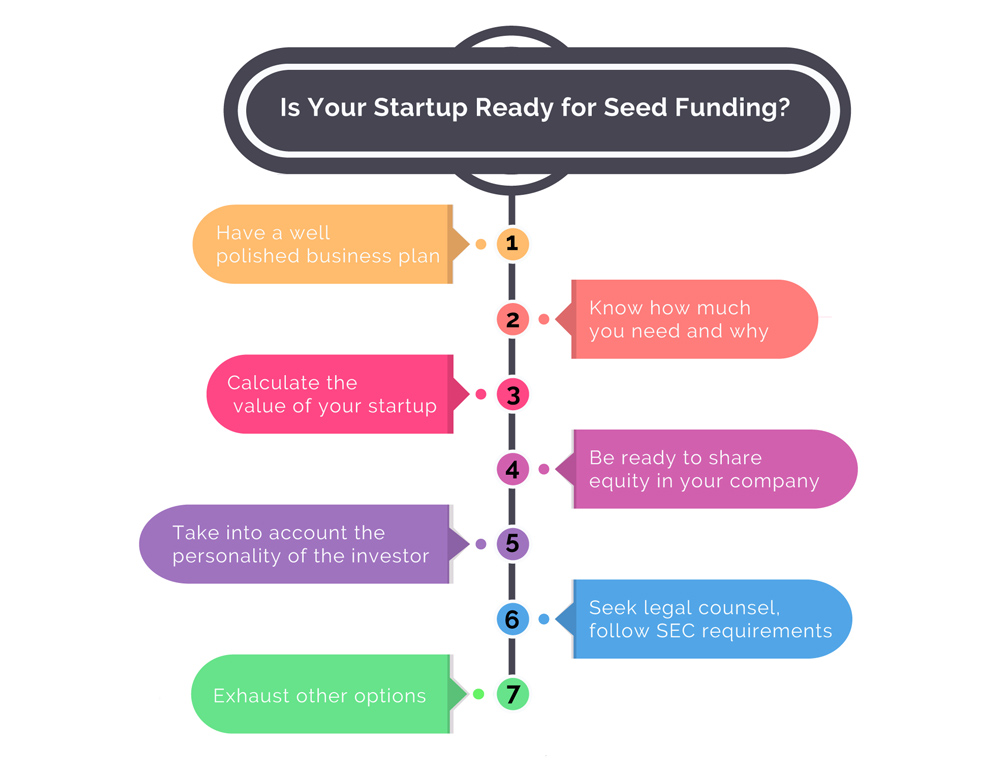
Unlike venture capital firms, these investors are usually individuals who are able to give large amounts of capital.
4.4: Startup Competitions
In addition to grants, you can also enter startup competitions to raise money for your app.
Established business organizations host these competitions as a way to generate publicity, but they often come with significant prizes.
PRO TIP:
In addition to money, these startup competitions often come with other perks, like the opportunity to showcase your business at respected industry events.
Even if you don’t win, there are plenty of benefits to entering a startup competition.
You’ll get plenty of media exposure and the competition could help you catch the eyes of prominent investors.
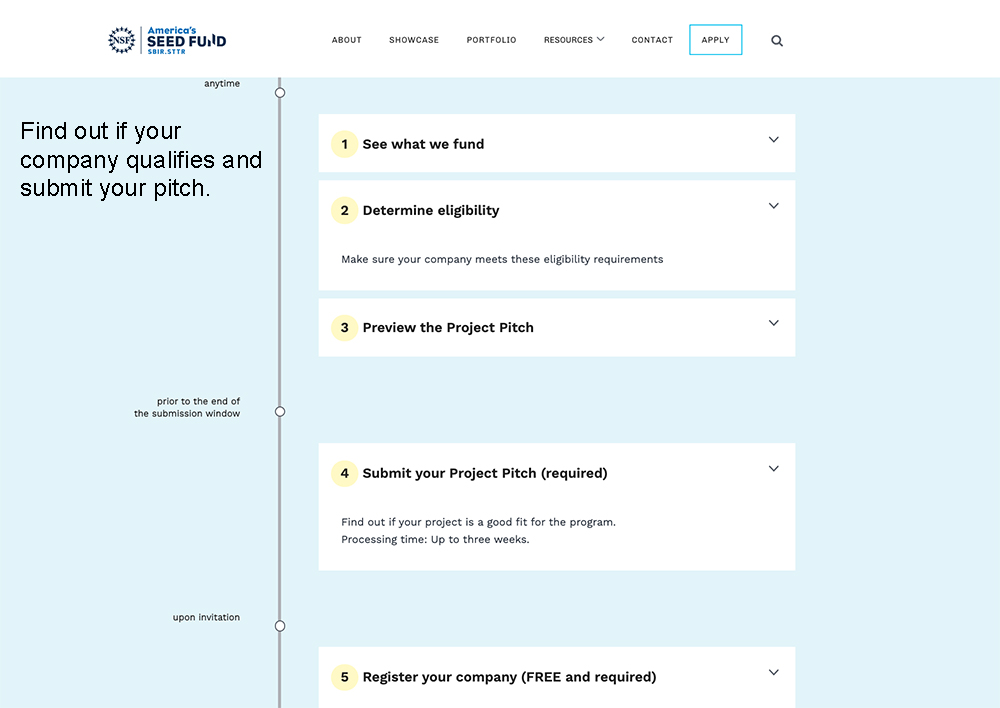
4.5: Private Investors
Another way to secure some funding for your mobile app is through private investors.
These are people who invest their money (as oppose to a company or some other organization) to help with a project’s growth and hopefully earn value from their investment.
Start looking for investors for your specific industry or private investors who simply like investing in apps.

PRO TIP:
Finding and pitching private investors can be tricky. You’ll need to explain exactly how investing in your app will benefit them in the long run.
Final Thoughts
Grants are one of the best ways to get necessary starting capital for your app.
They never need to be repaid, so you can start your business off on a positive financial note.
Since the grant application process can be very competitive, make sure you have a reliable business model and apply for multiple options.
Start planning today with our Simple Starter package—a careful approach that brings clarity to the mobile app development process, saving you time and money.
Are you ready to find out if your mobile app qualifies for a grant?

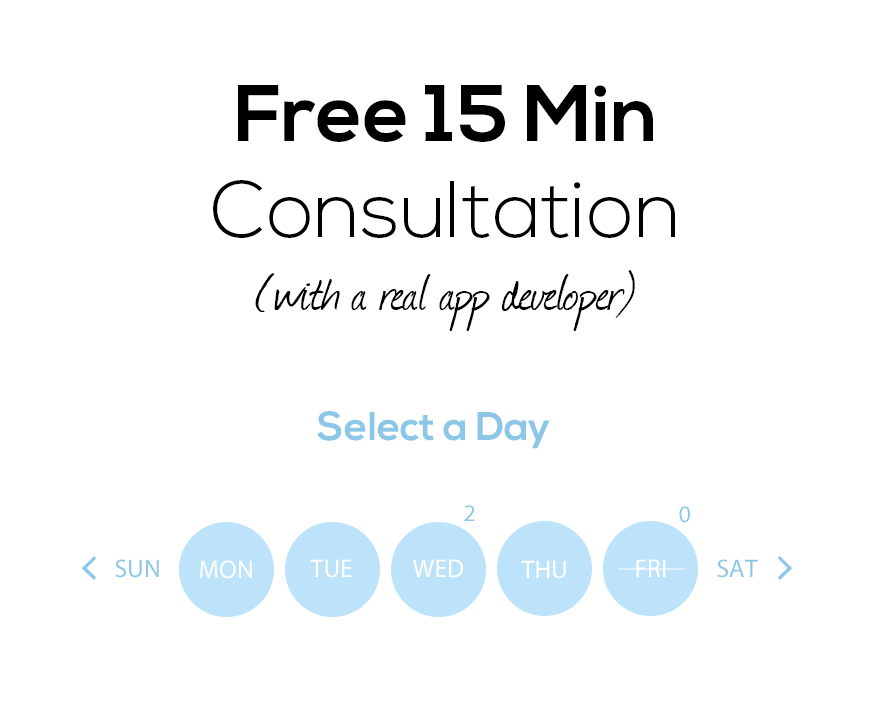


Your inbox wants some love.
Stay informed with Webiotic latest










0 Comments